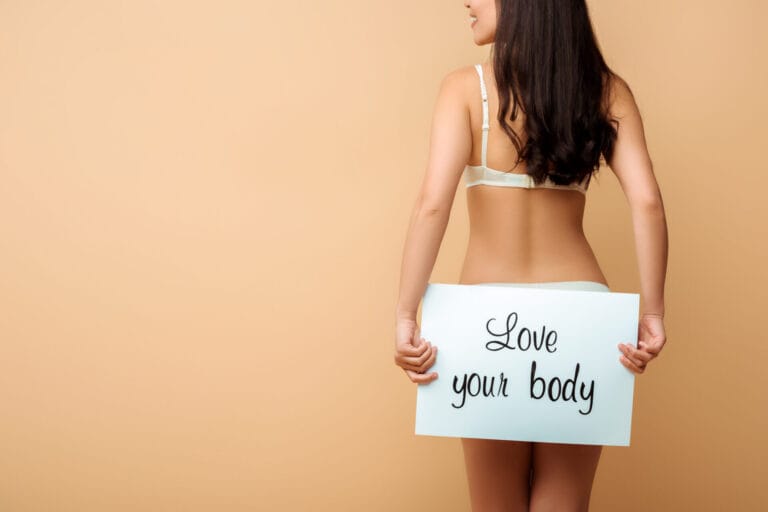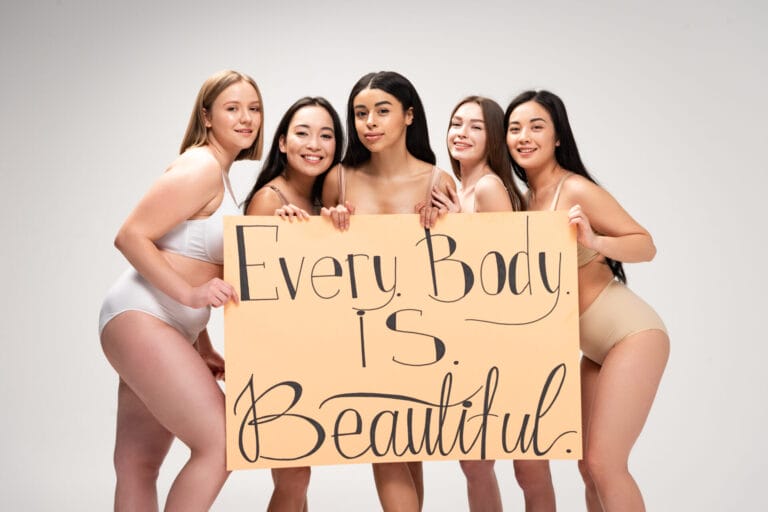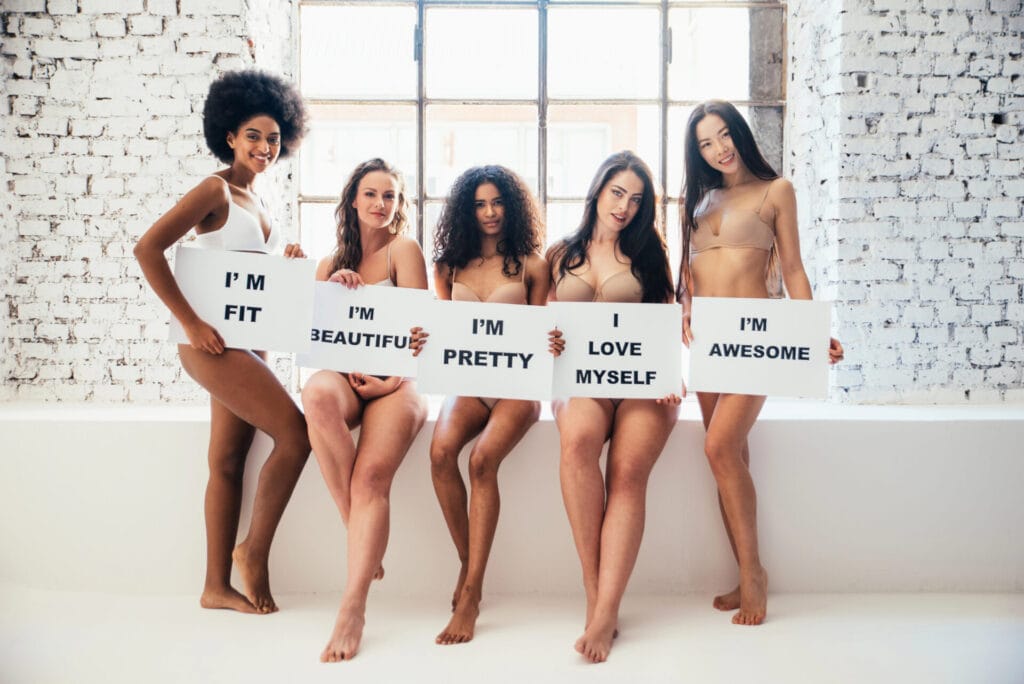Hey You, Fabulous Mom, why don’t we talk about Body Positivity?
This concept resonates deeply with many women, mainly subjected to social and increasingly frequent media scrutiny. However, it affects everyone of all ages.
This is a subject that touches me deeply and personally.
My journey towards a healthy life, like many others, started from the desire to permanently escape the vortex of body dysmorphism and the resulting eating disorders.
Modern society often imposes unsustainable and unrealistic models, frequently making us feel inadequate, especially considering the limited time we dedicate to ourselves.
Body positivity, Self-acceptance, and Self-esteem are not just fancy terms; they are vital for nurturing a healthy self-image, safeguarding our mental health, and being role models for the young minds we are raising.
Understanding, embracing, and teaching these concepts to our children leads to a more serene and authentic life, aspiring to healthy models rather than unattainable and fake ones.
The Origins of the Body Positivity Movement
The movement began as a way to challenge the unrealistic and often harmful standards of beauty perpetuated by the media and society. It started gaining traction in the 1960s with the fat acceptance movement and has evolved to include all body types, encouraging people to embrace their bodies as they are.
At its core, body positivity is about loving and accepting your body regardless of its shape, size, or appearance, arguing that neither fat-shaming nor skinny-shaming is acceptable and that all body types can and should be celebrated.
It promotes the idea that everyone deserves to feel comfortable and confident in their own skin. It encourages you to focus on what your body can do rather than just how it looks, fostering a sense of gratitude and appreciation.
As moms, embracing body positivity is vital not just for ourselves but also for our children and how we can shape their minds.

What is Self-Acceptance?
It isn’t as easy as it seems, though.
Some days, we look at ourselves in the mirror and don’t like what we see, but it’s all natural and human.
Our body tells stories of everything we went through.
I will always have a scar that will remind me I gave life. Not that I need a reminder, but it’s just to say that it’s not just a scar; it’s a story to tell.
Every human being experiences body changes throughout life, but we mothers experience more of them.
Your body changes so much, and most of the time, with no turning back.
But it can also be better (not just in the way it looks) and stronger.
It is vital to accept yourself as you are.
Self-acceptance is recognizing and embracing all aspects of yourself, including your strengths and weaknesses. It means acknowledging your imperfections without judgment and understanding that you are worthy of love and respect just as you are.
Achieving self-acceptance
Self-Awareness
Recognize your thoughts and feelings without judgment.
Self-Compassion
Treat yourself with the same kindness you would offer a friend. Be kind to yourself during times of failure or suffering, understanding that imperfection is part of the human experience. Sometimes, this is the hardest thing to do, so let’s cut ourselves some slack.
Positive Affirmations
Reinforce positive beliefs about yourself through daily affirmations, especially when you are already juggling multiple things simultaneously, and you even had the time to catch your breath, but you still keep on going.
Mindfulness
Practice being present and accepting your current state without wishing it were different.

Boosting self-esteem
Setting Realistic Goals
Achievable goals can provide a sense of accomplishment. It is important to go beyond your limits, but setting the bar too high can create a sense of inadequacy and failure.
Positive Self Talking
Replace negative thoughts with positive affirmations. Acknowledge your inner critic but do not let it define you. Practice positive self-talk and remind yourself of your worth.
Be kind to yourself in any stage of your life.
Surrounding Yourself with Supportive People
Build a network of friends and family who uplift you.
Taking Care of Your Body
To improve how you feel about yourself, first of all exercise regularly, eat healthy, but also treat yourself once in a while, sleep sufficiently and comfortably.
The Impact of Media on Self-Perception
Media literacy is the ability to access, analyze, evaluate, and create media in various forms.
It’s about understanding the messages being conveyed and recognizing the intent behind them.
Media can significantly impact self-perception.
Consider all those images of women in perfect shape after giving birth. Are they realistic? I bet they make you feel inadequate.
We’ve all been there once or twice(maybe more).
Understanding how media shapes perceptions can help you critically evaluate these messages, mitigate their negative effects, and sometimes even laugh about them.
Enhance Media Literacy
Critical Thinking
Question the motives behind media messages.
Research
Look for credible sources of information, and also trust your gut!
Discussion
Engage open-mindedly in conversations about media with others to gain different perspectives.
Creation
Develop your own media content to understand the process and intention behind media production.
Influences of Social Media
Social media can be an excellent tool for promoting body positivity.
Many influencers and organizations use platforms like Instagram and Facebook to share uplifting messages, real-life stories, and tips for embracing body positivity.
However, it can also have considerable negative impacts. The constant stream of often unrealistic images may lead to comparison and self-doubt.
Always bear in mind that reality is quite different from the glossy images you see on Social Media.
Each one of us only shows what we want the rest of the world to know.
Few dare to show their authentic selves truly.
Therefore, curate your feed to include positive, diverse voices, and take regular breaks from social media.

This is a great read! Thank you for this!